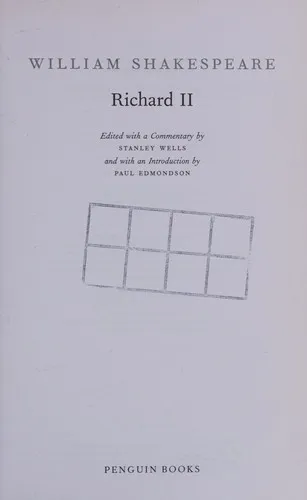'Not all the water in the rough rude sea Can wash the balm off from an anointed king' Richard, a vain, despotic ruler, listens only to his flatterers. When his cousin Bolingbroke, previously banished, returns to seize the crown, Richard discovers that the throne given to him by God can be taken from him by men. Depicting a tortured and morally ambivalent soul wearing the 'hollow crown', whose illusions are brutally shattered, this tragic history play unravels the idea of kingship. It is also a work of epic lyricism, filled with some of Shakespeare's most intoxicating poetry. 'We go to Shakespeare to find out about ourselves.' Jeanette Winterson General Introduction by Stanley Wells Edited by Stanley Wells with an Introduction by Paul Edmondson
William Shakespeare
William Shakespeare was an English playwright, poet, and actor, widely regarded as one of the greatest writers in the English language. He is known for his numerous plays and sonnets, which have had a profound impact on literature and theater. Some of his most notable works include "Romeo and Juliet," "Hamlet," "Macbeth," and "Othello." Shakespeare's writing is characterized by his use of intricate language, complex characters, and universal themes such as love, jealousy, power, and ambition. His works have been translated into every major language and are performed around the world to this day. Shakespeare's influence on literature, drama, and the English language is immeasurable, and his legacy continues to endure centuries after his death. His most famous work is arguably "Romeo and Juliet," a tragic love story that has become a timeless classic.


